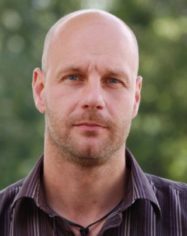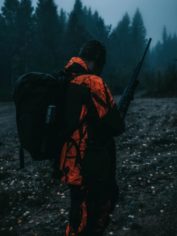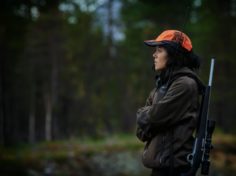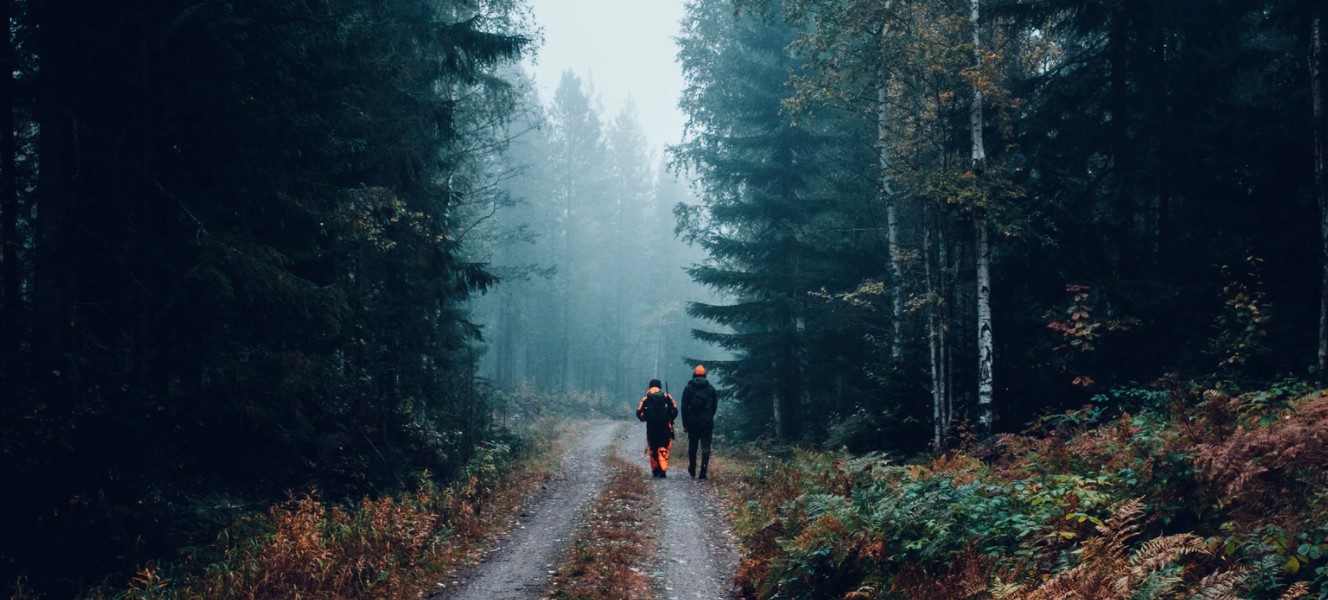Swedish hunters alarmed at new EU proposals to limit hunting areas
Hunting is one of Sweden's large popular movements, with over 300 000 registered hunters. But the Swedish Hunters' Association has expressed concern over increased regulations from the EU. The Swedish association now even has staff on site in Brussels in order to safeguard the interests of Swedish hunters. A current proposal is to introduce "strict protection" on at least 10 percent of Swedish land, which would ban hunting in a large part of areas which are currently designated for this.
Published: December 6, 2020, 9:49 am
The European Commission has proposed that hunting be banned in a large part of Sweden. This is allegedly in line with the Union’s “biodiversity strategy”, where at least 10 percent of the EU would fall under “strict protection”.
This level of protection also seems to abolish the Swedish right of public access, as only “strictly controlled tourism” should be allowed. The Swedish Hunters’ Association has been strongly critical of the proposal because it is “remarkable that hunting – which is a sustainable practice – is equated with mining”.
Swedish weekly Nya Tider has spoken with the Jägareförbundet’s communications manager Magnus Rydholm, who said that it was clear that the EU is seeking more and more powers in hunting policy.
The controversial proposal is presented in the EU document “Strategy for biodiversity for 2030” under the name “Give nature more space in our lives”. It states that one third of the Union’s land must be protected, and one third of this land must in turn be covered by so-called “strict protection”.
That nature should be protected certainly sounds positive to most people, but to find out what is meant in practice, you have to read various additional documents. It is only in the “technical” document “Technical note on criteria and guidance for protected areas designation” that the real significance of “strict protection” is revealed. Essentially it means a ban on hunting, but even includes strolling in a forest without “strict control”.
According to Rydholm: “Extractive activities, such as mining, fishing, hunting or forestry, are not compatible with this level of protection, while less intrusive activities such as research, protection against natural disasters, non-invasive renewable energy installation, and strictly controlled tourism are often compatible.”
The EU noted that today only three percent of its land area could count on “strict protection”. The aim of the new measure is to increase this to at least ten percent of the Union’s land. These concern mainly primeval and natural forests, but also “significant carbon-rich ecosystems, such as peatlands, grasslands, wetlands, mangrove forests and seagrass beds”.
In fact, according to the EU, Sweden’s share can also be greater than 10 percent, to compensate for EU countries that do not have such large forest areas to protect.
When Nya Tider spoke to the Swedish Hunters’ Association’s communications manager Magnus Rydholm on the phone, he said that he could not understand how the EU could compare hunting and fishing with mining.
“We believe that hunting and fishing, as it is conducted, is adapted for sustainable use where you take a small part of the growth that takes place in the tribe and assimilate, while the tribe grows again.” He said the Old Norse boar Sæhrímnir, who was slaughtered every night and yet was resurrected in the evening, exemplified this.

Magnus Rydholm, communications manager for the Swedish Hunters’ Association, strongly believes that today’s hunting benefits biological diversity, and does not threaten it. Photo: Jägareförbundet
“If you want to draw a literary comparison, you can use Sæhrímnir – next year there will be a new animal if you manage your game management wisely. To see it as a problem for biodiversity, we do not think that is correct. On the contrary, wildlife management today, and many of the things we do, benefit biodiversity. Seen from that perspective, it becomes even more strange.”
Bo Sköld, general secretary of the Swedish Hunters’ Association, commented on the move by die EU on the association’s website.
“There seems to be an attitude that hunting – which is a sustainable use of nature – causes damage to ecosystems. To even mention hunting and mining as comparable activities shows a total ignorance of sustainable use and how hunting is conducted today. ”
According to Sköld, hunting and biodiversity are not in conflict with each other: “Biodiversity is extremely important, but utopian proposals for untouched nature do not automatically provide better diversity.”
Rydholm agreed that biological diversity was very important, but that it was certainly not being threatened by hunting: “The most species-rich and valuable areas, and where we have lost a lot of biodiversity, are in agricultural landscapes, in the forest and above all natural pastures, where we have grazing animals, haymaking, butterflies, insects and flowers that with today’s farming methods decrease in number. We have had an agriculture and a forestry that has worked quite similarly until the 1950s, and then there have been changes: We have rationalized and streamlined agriculture so that it is possible to keep prices low on food et cetera. It has effects when you do these things, and there you have the big reasons that contribute to reducing biodiversity. The hunt? We deal with game management, so in a fairly heavily cultivated landscape we want a game field where there are some flowers and other things.”
Change in the EU’s view of hunting
According to the Swedish Hunters’ Association, the EU’s attitude until now has been that hunting does not threaten biological diversity. The EU’s so-called Natura 2000 areas, of which there are approximately 4 000 in Sweden, mean that an area is covered by protection under the Nature Conservation Act, for example against mining and other extraction activities.
But hunting has since become a supranational issue after Sweden’s EU accession to the EU in 1995. Before that it was entirely a national issue for each member state. This proposal now being put forward signals a radical shift.
“In the Natura 2000 areas created by the EU, hunting was not considered a problem, but would continue in these areas. We think this is a completely natural view. Hunting is not a problem for diversity,” said Rydholm.
Rydholm does not yet know which areas in Sweden would be subject to “strict protection”. “It is difficult to say, but if it becomes a reality, it will affect a lot of people.”

The right of public access would cease to apply in forest areas as only “controlled tourism” would be allowed. Photo supplied
Especially because the proposal will go beyond hunting: “Hunting is one thing, but it is also a matter of property rights. It is the active outdoor life that will be affected, because you may no longer have tourism and the right of public access.”
If the EU proposal becomes a reality, it means that fishing will also be banned in the areas that are subject to “strict protection”. The right of public access also ceases to apply in these areas as only “controlled tourism” is allowed. Fishing is not formally part of the right of public access, but is today allowed in large parts of Sweden for anyone without a fishing license. This applies to the five largest lakes and also along the coasts.
Sweden has the richest forest areas in the EU, with 28,1 million hectares of forest. As much as 69 percent of Sweden are forests, according to Statistics Sweden (SCB). With the rich biological diversity these areas possess, it means, according to the Swedish Hunters’ Association, that an extra heavy burden falls on Sweden compared with countries that do not have as large a forest area.
“This could mean that countries like Sweden with a lot of forest may have to set aside land to compensate for the EU countries that do not have it,” the Swedish Hunters’ Association noted on its website.
“It is very worrying if Brussels is given the power to dictate what percentage of a member state’s territory should in practice be shut down for all human activity. That issue should be handled at the national level”, said Secretary General Bo Sköld.
Rydholm explained to Nya Tider that the EU was seeking more and more control over hunting policy. The issue raised about “biodiversity”, is not the only excuse to meddle in the national affairs of member states. Swedish hunters now need staff on site in Brussels to guard the interests of Sweden’s hunters in the never-ending stream of regulations from the EU.
When Nya Tider wanted to know if it has become a must for the Swedish Hunters’ Association to have staff in Brussels, Rydholm responded in the affirmative. “Very much everything that affects us and our conditions come from there. It is natural that you have to be there to understand and discover processes in good time to be prepared and able to answer questions. You find out things if you are there. There is a European hunting federation that consists of all European countries, which is abbreviated FACE, they are there too and work for all member states. But we have chosen to have extra staff on site because we think this is important.”
The EU regulations he is most critical of include the prohibition on trade in seal products. “Today it is allowed to hunt seals, you can take care of it, but you are not allowed to sell its products, such as skins, seal oil or anything. It banned the EU. Carl Schlyter (formerly Green Party) was a driving force in the process of getting the legislation passed. We first had an exception in Sweden, but the WTO said no to that, and therefore you are not allowed to sell seal products. This is a problem because you do not see animals as a resource. Part of being an animal is a resource, is to take advantage of the products: skins, seal oil, meat. Now you are not allowed to sell meat to a trader or restaurant that can use this. There will be no sustainability in it when you can not take advantage of the prey, something that is an ethical principle that lives deep in all hunters,” Rydholm explained.
Rydholm added that there were many more problematic EU regulations, mainly the Species and Habitats Directive and the Birds Directive. The main criticism is that the directives do not adapt to changes in for example bird populations.

Female hunter in Norway. The EU has based their drive to take control of sovereign land more on emotional arguments. Photo credit: Vidar Nordli Mathisen Reisadalen.
“The animals that were endangered in 1978 are still protected, no matter how many they have become. The cormorant is one such species that is in the Birds Directive, which means that it has been necessary to have a fairly rigorous protection hunt instead of a licensed hunt, because the directive does not allow licensed hunting.”
Swedish predator policy is also regulated by the EU. “The predator management with the wolves is in the species and habitat directive, where you have opinions, above all on how Sweden and Finland conduct their wolf hunting. The directive states that these predators are strictly protected, and then they become a problem when packs grow and they become numerous.
“The wolf population has increased a lot in Poland and Germany, so it definitely did not look like that when the directive was taken. In Sweden, Norway and Finland, they have also increased very much, and here they wrestle with very many different issues where the locals – who have to live with the consequences of the wolves – have a different picture than what they have in Brussels. Finland has in fact been up in the European Court of Justice for its wolf hunt.”
Rydholm said it was clear that the EU wanted to expand its mandate and the areas in which it has been operating. With the EU meddling in national issues, hunting has become more of a supranational or international matter.
Karl Hedin, one of Sweden’s largest private forest owners and a person who is involved in issues related to hunting, told Nya Tider that he viewed the EU proposal as a continuation of what he called the confiscation of property rights, ie that the state takes away landowners’ right to cultivate their forests.
“It does not surprise me, this is driven by the environmental movement without any relevance to the basic idea. The environment must be protected – protected from what? It is an ancient cultural expression. It sustained us not so long ago.”
The magazine Svensk Jakt, for which Magnus Rydholm was previously editor-in-chief, called the EU proposal “a direct threat to hunting and fishing in large parts of Sweden” because many more areas may soon be affected.
“The most important thing is that you understand from a political point of view what consequences this can have. It can have consequences for so many different areas: we have reindeer farming, we have ownership, we have forestry, we have the active outdoor life, we have hunting, we have fishing. It can even affect rural development in an area. You have to know what consequences it has before you move on, before you say ‘yes, it sounds great’.”
The European Commission has been pushing the issue with vigor and has demanded a quick response to the proposal from all member states, before the end of the year. Thereafter, the work of establishing criteria continues, and by 2023, each country must have identified areas that fall under EU criteria. In 2024, the EU will evaluate the work and quite possibly apply strict legislation.
The Swedish Hunters’ Association has called on decision-makers at all levels of society to act against the proposal in order to stop the plans:
“This proposal will affect hunting, fishing, forestry, property rights, sustainable use and many other things that we in Sweden take for granted,” they wrote on their website.
All rights reserved. You have permission to quote freely from the articles provided that the source (www.freewestmedia.com) is given. Photos may not be used without our consent.
Consider donating to support our work
Help us to produce more articles like this. FreeWestMedia is depending on donations from our readers to keep going. With your help, we expose the mainstream fake news agenda.
Keep your language polite. Readers from many different countries visit and contribute to Free West Media and we must therefore obey the rules in, for example, Germany. Illegal content will be deleted.
If you have been approved to post comments without preview from FWM, you are responsible for violations of any law. This means that FWM may be forced to cooperate with authorities in a possible crime investigation.
If your comments are subject to preview by FWM, please be patient. We continually review comments but depending on the time of day it can take up to several hours before your comment is reviewed.
We reserve the right to delete comments that are offensive, contain slander or foul language, or are irrelevant to the discussion.

Swedish military wants to remilitarize the Åland Islands
The demilitarized autonomy has previously been known as 'the islands of peace.

NOAA Predicts Zero Sunspots for Almost the Whole 2030s
CLIMATEThe United States' government scientific organization, the National Oceanic and Atmospheric Administration (NOAA), predicts zero sunspots from 2031 to 2040. This is an extreme situation that has not occurred in as long as humanity has been counting sunspots, and it leads us into uncharted territory in terms of our solar system. However, this prediction aligns with the warnings of the world-renowned solar researcher Valentina Zharkova for many years, who indicated in 2019 various signs of this catastrophic phenomenon, including the extreme hailstorms we have seen in Europe and the world this summer. The forecast and various observations this year give cause for very significant concern. In this unique analysis, Free West Media explains why.

European Nationalist Parties Forge Cooperation Ahead of EU Elections
EUROPEAN ELECTIONSOn Saturday, August 26, representatives of six European nationalist parties gathered in Budapest. The meeting was initiated by the Hungarian party Mi Hazánk and took place in the national parliament. Representatives of the parties signed a joint declaration that not only reaffirms the parties' friendship but also their unity on a range of complex political issues. A surprisingly clear and radical manifesto was established. The hope is that this cooperation will lead to success in the EU elections and eventually result in the formation of a group in the European Parliament. For Swedish nationalism, this meeting marks a success as Sweden, for the first time, has a party represented in a leading nationalist cooperation in Europe. Free West Media was present at this historic event.

Turkey Believes Sweden Hasn’t Done Enough
Sweden will have to wait a bit longer for NATO membership, according to Turkey's Justice Minister Jilmaz Tunc. First, Sweden must extradite the "terrorists" Turkey wants and stop the desecration of the Quran.

Swedish Weapon Takes Down Russia’s Best Attack Helicopter
The Russian attack helicopter Ka-52 is considered one of the world's best and has struck fear in Ukraine, where it has hunted down tanks and other armored vehicles, often beyond the range of many light anti-aircraft systems. However, it has met its match in the Swedish air defense missile system RBS 70, which has quickly led to significant losses for the Russian helicopter forces.

Strong Confidence in German AfD
Alternative for Germany (AfD) held a party conference on July 29-30 to select candidates for the upcoming EU election next year. EU Parliament member Maximilian Krah, belonging to the party's more radical, ethnonationalist faction, was appointed as the top candidate. The party's two spokespersons delivered powerful speeches criticizing the EU's failed migration policy and trade sanctions that isolate Europe and Germany from the rest of the world. They argued that it's time for the EU to return a significant portion of its power to national parliaments. However, they have dropped the demand for Germany to exit the EU.

The Establishment Wants to Ban Germany’s Second Largest Party – for the Sake of Democracy
The rising popularity of AfD has raised strong concerns within the establishment. Despite lies and demonization in the media and isolation from the overall political establishment, the party continues to grow. Certain representatives of the party are accused of becoming increasingly "extreme," and in an unusual move, the influential weekly newspaper Der Spiegel demanded that AfD be "banned."

Dutch FvD break through the media blockade
What is happening in the Netherlands? It is often difficult to follow events in other countries, especially when distorted by system media. We give Forum for Democracy (FvD) the opportunity to speak out on the political situation in the Netherlands and the staunch resistance they face in trying to save the country.

The Ursula von der Leyen Affair
After a criminal complaint in Belgium against the President of the European Commission, the so-called SMS-case, now takes a new turn. The judge responsible for the investigation will likely gain access to the secret messages exchanged between Ursula von der Leyen and Albert Bourla, CEO of Pfizer, at least if they haven't been deleted.

Publisher of Unique Literature Worldwide Blocked by International Distributor
Arktos has distinguished itself by publishing groundbreaking philosophers and social critics. Now, the publisher's international distributor has abruptly terminated the cooperation, and more than 400 already printed titles cannot reach their audience. There is strong evidence that the distributor has been under pressure, something that has also happened in Sweden. We have spoken with Arktos founder Daniel Friberg about the ongoing struggle for freedom of speech in a shrinking cultural corridor.

